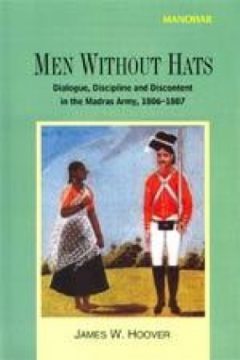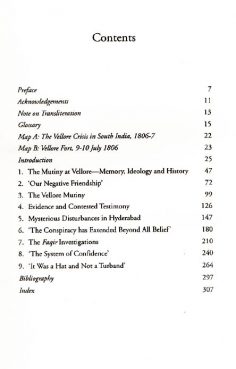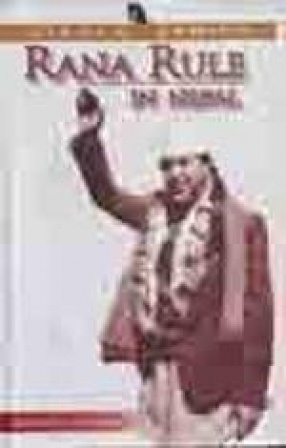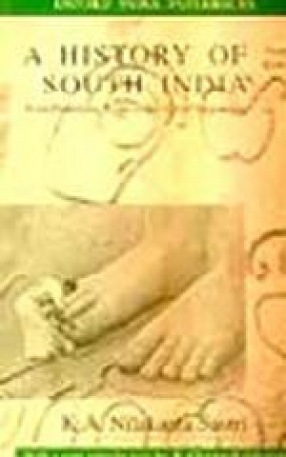The sepoy mutiny at vellore in 1806 was the last major threat to British rule in south India, but it ended scarcely eight hours after it began the consequences of the revolt, however, lasted much longer. Determined to find the cause of this ‘unexpected’ mutiny, officials of the East Indian Company launched a sweeping enquiry, the first of its kind to be made regarding the Indian Army. As this new bureaucratic process of information gathering and procedure intruded upon the sepoys’ traditional world of unrecorded negotiation and personal bonds, panic spread, causing near-mutinies, riots, and political witch-hunts at garrison towns across the Madras Presidency. The British asked ‘their’ sepoys many questions during the ensuing investigations of these incidents: why did they object to their new uniforms-especially to the new turban, which sepoys likened to a European topi, or hat? In what sorts of political activities were sepoys engaged? British officials asked these questions, making assumptions regarding the identity, culture, and loyalty of Indian soldiers that were based primarily on colonial myth-making-assumping, for instance, that the sepoys could not have planned an uprising on their own, without the aid of external provocateurs attached to the exiled sons of Tipu Sultan. Indeed, the task of British investigators was made extremely difficult by the fact that the mutinous troops had been guarding the Mysorean princes and their families, held as state prisoners at Vellore, at the time of the rising. The real interior life and interests of the sepoy battalions, revealed by the Vellore Mutiny enquiries, opened up the origins, socio-political thoughts, and daily lives of the indigenous soldiers of the Raj for the first time, revealing an army very different from that normally imagined by its own British officers. In Men Without Hats, all available primary documents concerning the Vellore Mutiny have been analysed for the first time, producing a comprehensive view of this significant event and a conclusion that challenges previous scholarly conceptions of the significance of the uprising.
Rana Rule in Nepal
$45.00
$50.00







There are no reviews yet.